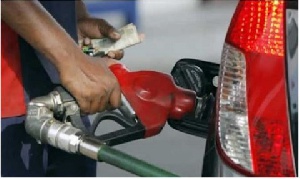The Government of Ghana is not happy with the high cost of fuel in the country, Nana Oppong Damoah, a communications expert at the Energy Ministry, has said.
According to him, the prices are increasing due to the deregulation exercise, but the government is undertaking several measures to ensure a reduction in the prices.
Speaking on the Executive Breakfast Show (EBS) on Class 91.3FM hosted by Moro Awudu on Tuesday, 5 June 2018, Mr Damoah said when the New Patriotic Party (NPP) took over the governance of this country after the 2016 presidential and parliamentary elections, the new government, as part of its measures to reduce the cost of fuel, filed a motion in parliament to review the Special Petroleum Levy (SPT).
He said: “We realised that there were several issues that have to be dealt with. Immediately we assumed power, you may remember the SPT was touched, some taxes were removed. However, we realised that that was not enough.
“We also took a decision to go to parliament and have the calculation of the SPT changed from a percentage to a fixed amount. We still realised that that was not enough and so in the coming days you will hear about further action on the Special Petroleum Tax.”
He further explained that: “What happened was that the government changed the mode of calculation from 15 per cent to a fixed figure of about 50 pesewas per liter. What that meant was that the general calculation of 15 per cent was changed forever. Government is still taking further action.
“You may have heard of the proposal to build a 150,000 barrels per day refinery in Tema that is one of the measures.
“The current regime is such that we are importing largely finished products. What this means is that as a country we use about the equivalent of 80,000 barrels per day of petroleum products, TOR has about 45,000 barrels per day capacity. Currently we are producing just about 20,000 barrels per day from the Tema Oil Refinery which means, on a daily basis, we have about 60,000 barrels per day which has to be brought in.
“This has implications on the Ghanaian economy. For instance on the price of petroleum products and even the stability of the cedi because we have to change large amount of cedis into dollars to be able to purchase the fuel that we need.”
Business News of Tuesday, 5 June 2018
Source: classfmonline.com













